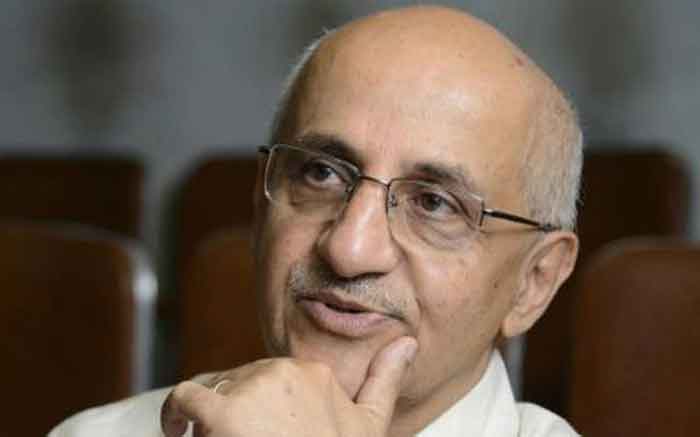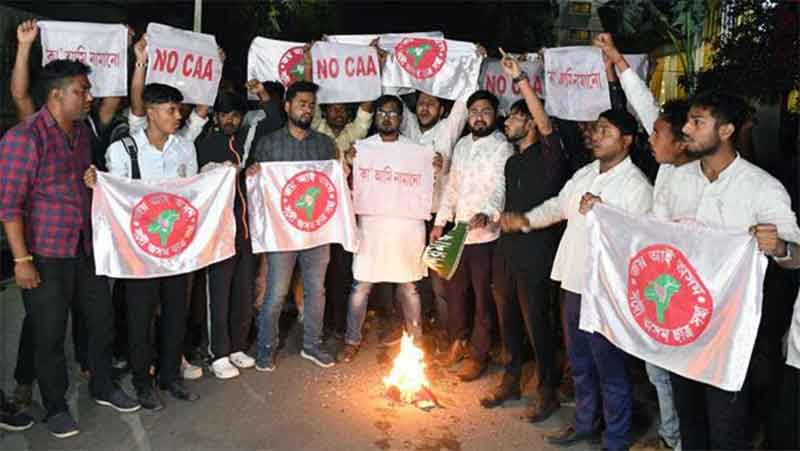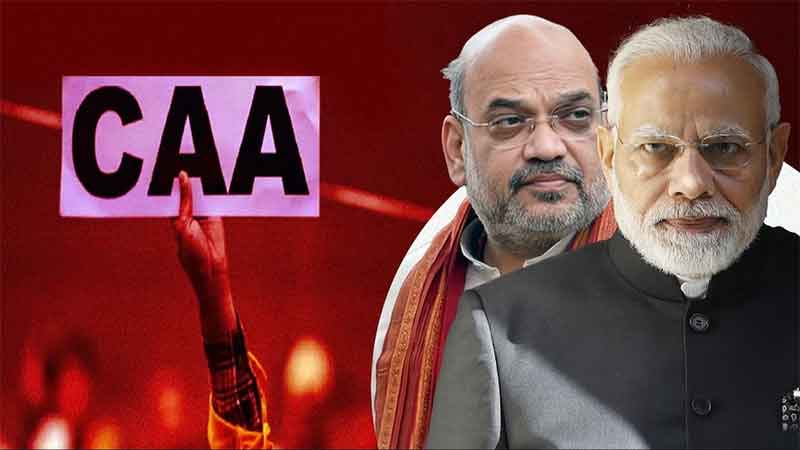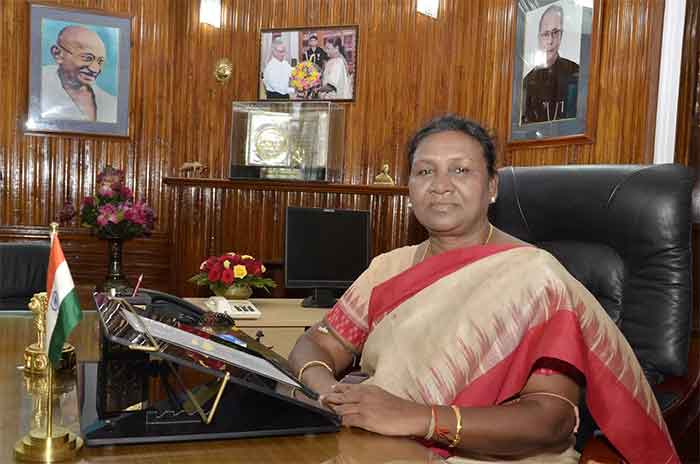
Just a few days back, the chargesheet was filed by the Delhi police against a well-known Human Right activist and committed Gandhian Harsh Mander along with other activists. The Delhi police alleged that Mander had incited violence (mainly to those people who were protesting against anti-constitutional Act like CAA). As a result, Delhi riots took place in the month of February 2020, leading to deaths of more than 50 people. After hearing the news (mainly when the Delhi police had implicated Mander’s name in chargesheet along with others) more than two hundred academicians, social activists, Artists, Feminists, members of civil society and senior bureaucrats have come forward and vehemently condemned, deeply anguished, and said that it is ‘utterly deplorable’ to vilify and tarnished the image of a committed Gandhian and peace-loving activist Harsh Mander.
Contrary to false narratives concocted by the Delhi police for instigating violence, (while citing the speech delivered by Harsh Mander at Jamia Millia Islamia on 16th December 2019), if we will holistically analyze the speech of Mander, one could honestly say without hesitation that during his speech Mander had made an appeal to protesting masses, kindly shun the path of violent methods and register protest against ant-constitutional Act like CAA-NPR-NRC in a democratic, non-violent, peaceful, and Gandhian manner. For greater clarity, let me cite what Mander has said in his speech:
“If someone is attempting to bring darkness to the country, and we also do the same in order to fight, then the darkness will only become more severe. If there is darkness, then the only way that can be fought is by lighting a lamp. And if there is a huge storm, we will light a lamp against the darkness. The only answer we have to their hate is love. They will resort to violence, they will instigate us to indulge in violence but we will never carry out any Violence. You must understand that it is their plan to instigate you towards violence so that when we commit 2% violence, they respond with 100%. We have learnt from Gandhiji how to respond to violence and injustice. We will fight with non-violence. Anyone who instigates you toward violence or hatred, they are not your friends.”
One basis of his speech cited above, it is clear that Mander was making an appeal with protesting masses to adopt Gandhian mode of struggle in a peaceful and democratic manner rather than motivated by violence and anti- constitutional activities. The violent method of protests will give an opportunity to others (especially to supporters of CAA) who want to defame our genuine democratic struggle based on constitutional values. To convince the protesting masses, Mander in his speech cited Gandhiji and said that we have to draw a lesson from his method of struggles because he fought against the mighty British Empire and got freedom in a non-violent and peaceful manner.
However, it is ironical to note that those who are real culprits and had given inflammatory and hate speeches (mainly who are associated with the current ruling party) to incite violence during the Delhi riots are now still roaming freely in the public domain. So far, the Delhi police have not taken any strict legal actions against them.
While expressing my solidarity with Mander, I am not here going to enter into the details legal nitty-gritty of matter and let the fair inquiry should be conducted by an independent and impartial body on the basis of his speech (not doctored one), so that truth and justice could be brought in the public domain soon. In this piece, I will restrict myself to highlight the intellectual contributions made by an honest and Gandhian activist like Mander on a wide range of issues and problems especially related to marginalized groups. In addition, I will try to share some of my past experiences while working with Mander and his team (those who were associated with Aman Biradari and now Karavan-E- Mohabbat)) for a short period of time.
Before coming to his seminal contributions and intellectual commitments vis-a-vis subaltern masses as hinted above, let me underline here some intellectually stimulating moment which I had experienced while interacting with Mander in the past. I had an opportunity to work with him for a while and visited Gujarat in 2005 along with some friends under the banner of Aman Biradari, to study the socio-economic boycott of 2002 riots-affected victims mostly belonged to social and religious minority communities especially Muslims and Tribals.
Besides doing work on riots-affected victims, I had the opportunity to attend his class at the Nelson Mandela Centre for Peace and Conflict Resolution, Jamia Millia Islamia in 2005. I remember his first class which was indeed a very insightful lecture when he discussed the threat of communalism and challenges before the ‘secular democracy’. While giving his lecture on communalism, he cited the views of Prof. Bipan Chandra, (a noted secular historian of modern India) on communalism in modern India mainly to explain why communal violence took place in our society and suggested to read his well-known book, Communalism in Modern India (1984). To be very brief here, for Prof. Chandra, without communal ideology and organizations, it is not possible to promote communal tensions and violence in a divers and plural society like India. To stop and contain the threat of communal violence, we must need to develop and inculcate secular values among masses, as Chandra, says in his book. In other words, communal violence will not be possible to take root even in a religious a society like India without having the existence of communal ideology and organizations which often sharpened communal feelings to consolidate majoritarian sentiments for political motives. If we closely analyze several communal violence that took place in our country so far (barring few), Prof. Chandra’s analysis appears to be empirically and theoretically tenable to the large extent if not entirely.
Having discussed Prof. Chandra understanding of communalism, Mander had also shed a light briefly on the Senior Congress leader Mani Shankar Aiyar’s book, Confession of Secular Fundamentalist (2006). I remember in his classroom, Mander had cited the statement from Aiyar’s book where he mentioned about the secular orientation of his mother in spite of having a deeply religious outlook. In this respect, Aiyar says that my mother is deeply religious and deeply secular in her own right. To put it simply, religious men can be secular and non-religious one can be communal in nature especially in modern society.
Let me here add a little anecdote from historical past to understand point further. Take, for instance, Mr. Muhammad Ali Jinnah and V.D. Savarkar were atheists in their personal life but had communal orientations in the public and political domain. To note that both (Jinnah and Savarkar) had believed and promoted the thesis of the two-nation theory based on a religious ideology which had finally prepared the ground for the partition of India.
Having said that let me share some engagement with a secular based campaign launched by Mander and his team (under the banner of Aman Biradari in Delhi and elsewhere). I had along with some of my friends visited his office and attended various workshops related to peace and communal harmony held at different places most often at the Indian Institute of Social Science ( the ISS is located in Delhi) and elsewhere. While doing so, we had also participated and launched a secular campaign to promote communal harmony and peace among different communities.
On the basis of my personal interactions with Mander on several occasions, I have no hesitation to say that he is a committed man of civil society, tireless activist and a great defender of human rights. His work on tribals, women, Dalits, and minorities (especially on Indian Muslims) is worthwhile to remember at a time when the present ruling dispensation is not bothered about or paying serious attention to the problems of marginalized groups, as documented by various national and international civil society and human rights organizations.
It is to be remembered that during his more than two decades as a member of a civil servant, Mander had played a vital role to address the problems of tribals, India’s poor, and handled successfully several communal tensions. However, in the wake of Gujarat riots in 2002, he had registered his protest and submitted resignation, and finally decided to work as a full-time social activist among the subaltern masses. Since then, in my view, he has been continuously doing intellectually remarkable work and given thoughtful inputs in formulating public policies on a wide range of issues like hunger, homelessness, bonded labour, Right to foods, Child labour, and problems of tribals etc., to the public institutions and civil society bodies.
In the past, Mander was a member of the National Advisory Council (NAC) in 2010 which was headed by Sonia Gandhi. In addition, he had also served as an active member in various institutions and given his intellectual contributions and thoughtful suggestions to address the concern of masses. In this respect, he has given his intellectual inputs on issues like bonded labour and mental hospitals to the institution like the National Human Right Commission (NHRC). Mander was appointed and served as a special commissioner to the Supreme Court of India and ran the Right to food campaign. In his various capacities, he had given his intellectual insights in formulating several policy measures like Right to Food, Right to Information (RTI), and range of socio-economic related issues of India’s poor/vulnerable.
Keeping his deep commitment as an activist and public intellectual towards marginalized groups into account, civil society and human rights organizations had given various awards to him. He was awarded the Rajiv Gandhi National Sadbhavana Award for having done excellent work in the field of peace. He has also got the M.A. Thomas National Human Rights award in 2002. Keeping his committed work on communal harmony and peace among various communities into account, he was given the South Asian Minority Lawyers Harmony Award in 2012. The list is very long .
Currently, Mander is a Director at the Centre for Equity Studies, which brought out several important reports and compiled data about the pathetic conditions of marginalized social groups so far. He had also done noteworthy works and launched a massive campaign along with other civil society organizations against inhuman and humiliating practices like manual scavenging and untouchability. In so doing, Mander along with other activists have had drawn the attention of the respective governments in particular and civil society members in general towards these inhuman practices. As a result, consecutive governments had taken some measures to stop these inhuman practices. However, the phenomenon like untouchability experienced by India’s Dalits in our society is still widely prevailed in a caste-ridden society like India. Moreover, it was Mander along with other civil society organizations have played a pivotal role in drafting the Communal and Targeted Violence Bill which is still pending because the present ruling establishment is not bothered about and interested to pass this Bill in the Parliament.
In my view, it is rare to find an honest and dedicated social activist like Mander in a society like India who has done and produced a large volume of works and wrote dozen of books on a wide range of issues and problems especially faced by subaltern masses. Besides he writes regular Colum in several national newspapers like in Indian Express, The Hindustan Times and The Hindu, to articulate problems of underprivileged social groups. His approach and intellectual commitment is deeply rooted in ‘Constitutional Morality’ and based on Gandhian values. Keeping the Constitutional and egalitarian values in mind, Mander had challenged, criticized anti-poor policies of the ruling establishment and launched a secular campaign to stop increasing trends of inhuman practices like casteism, communalism, lynching, mob-violence, racial discriminations and feudal/patriarchal morality, widely prevalent in our society, as long way back had been also reminded by Babasaheb Ambedkar.
Contrary to allegations of the Delhi police and the Solicitor General of India (especially on the ‘facade of peace’), Mander‘s method of doing works and social activism is based on Gandhian values like peace, love, communal harmony in a non-violent manner as his speech stated above vividly demonstrated. In this respect, his works on communal harmony, spreading the message of love and peace through the several campaigns launched under the banner of secular platforms like Aman Biradari and the Karavan-E-Mohabbat is noteworthy and needs to be taken seriously by progressive-minded people in times to come. It is pertinent to note that during the stringent lockdown (as announced by PM Modi from 25th March 2020); it was Mander who took several initiatives to mitigate the sufferings of stranded migrant workers while raising their problems in the apex court. In short, the commitments made by Mander towards subaltern masses, vividly underline that he has a great soul and humanistic approach vis-à-vis the plight of India’s poor and migrant workers.
Let me end here by saying that let us wait for a fair and impartial inquiry by an independent body, so that truth and justice could be brought out in the public domain. Meanwhile, in a given depressing and sad situation (when the threat of Covid-19 pandemic is still looming especially in megacities like Delhi, Maharashtra, and Gujarat), it is not the right occasion to tarnish the image, harass and attack a committed social activist like Mander. As a member of civil society and responsible citizen, we the people of India have to counter the false narratives concocted by the Delhi police and a section of communal forces against the defender of Human rights like Mander.
Now, it is a crucial time to devote our entire efforts to save the lives and livelihoods of millions of migrant workers and vulnerable poor masses rather than involve in making allegations and counter-allegations. Moreover, we should focus on saving the lives of those corona patients who are currently battling for life rather than unnecessarily indulge in defaming, vilifying the dissenting voices in days to come. Without maintaining peace, communal harmony and commitments towards the toiling masses (as done by Mander in his various capacities, as mentioned above), it is not possible to build up a ‘self-reliant India (Atma Nirbhar Bharat) as PM Modi has recently reminded us in his several speeches.
Badre Alam Khan is a Research Scholar at the University of Delhi
SIGN UP FOR COUNTERCURRENTS DAILY NEWSLETTER















































